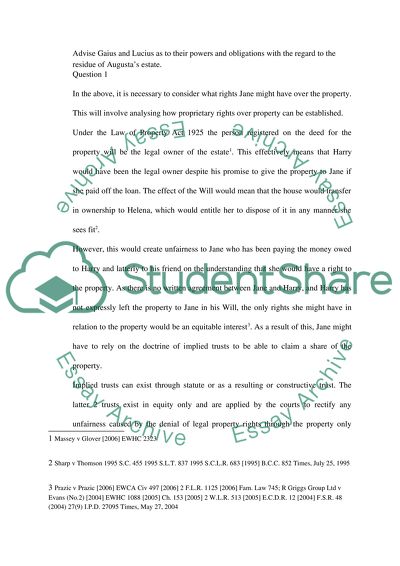Cite this document
(“Law of Property 1 Essay Example | Topics and Well Written Essays - 3000 words”, n.d.)
Retrieved from https://studentshare.org/environmental-studies/1418136-law-of-property
Retrieved from https://studentshare.org/environmental-studies/1418136-law-of-property
(Law of Property 1 Essay Example | Topics and Well Written Essays - 3000 Words)
https://studentshare.org/environmental-studies/1418136-law-of-property.
https://studentshare.org/environmental-studies/1418136-law-of-property.
“Law of Property 1 Essay Example | Topics and Well Written Essays - 3000 Words”, n.d. https://studentshare.org/environmental-studies/1418136-law-of-property.


